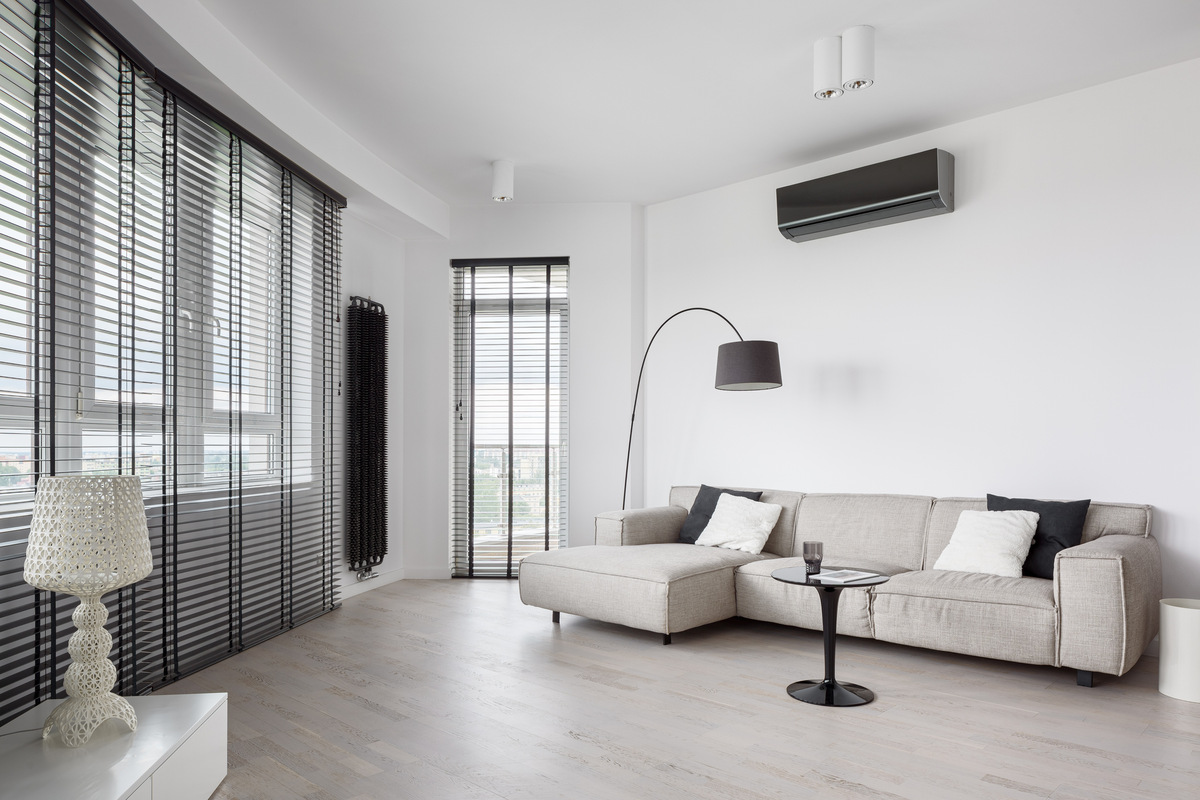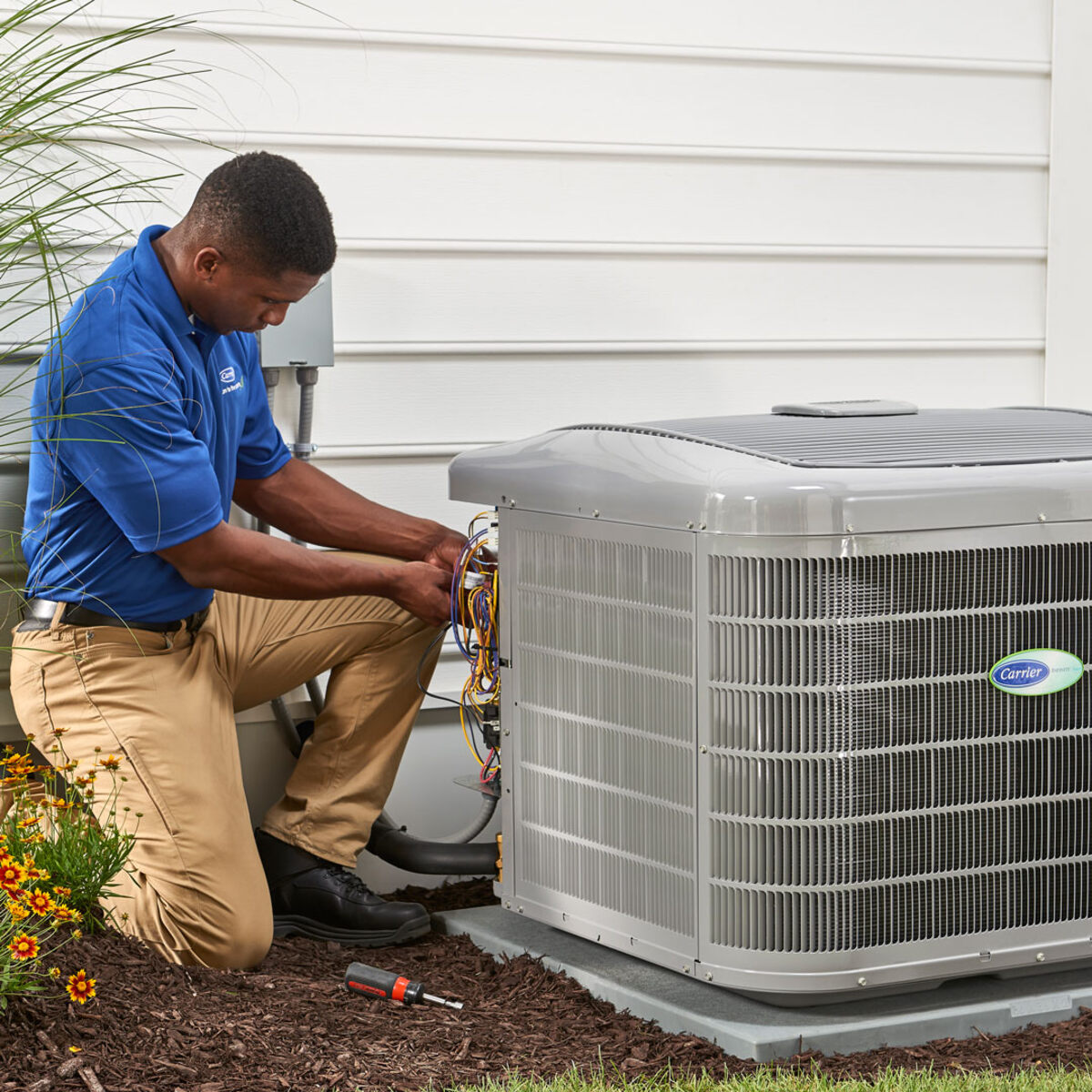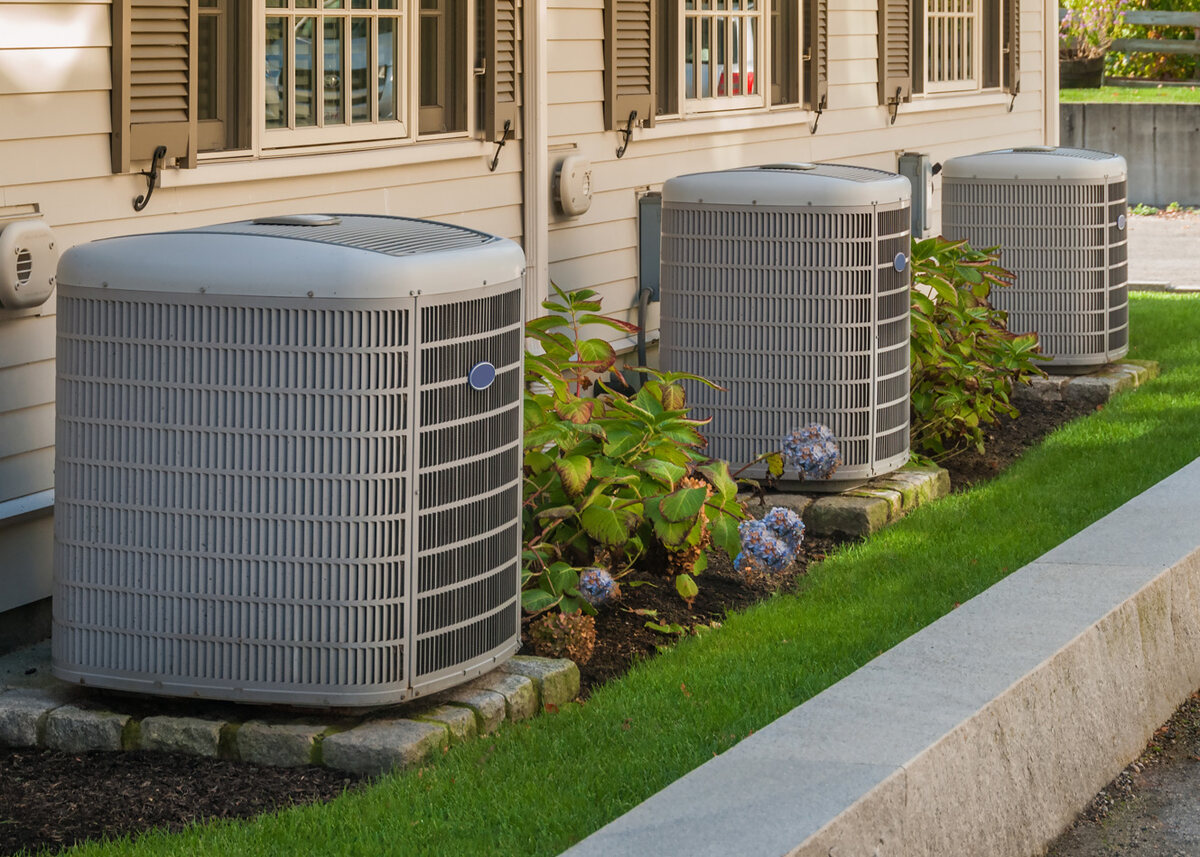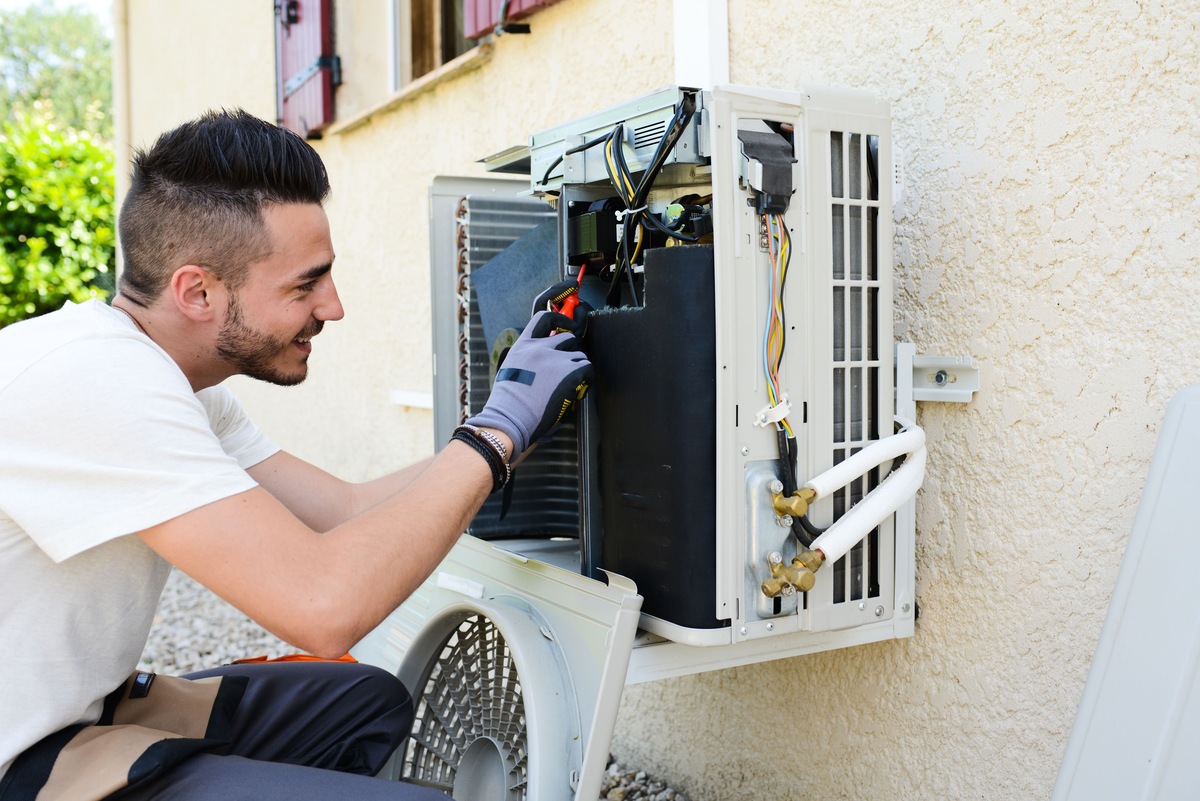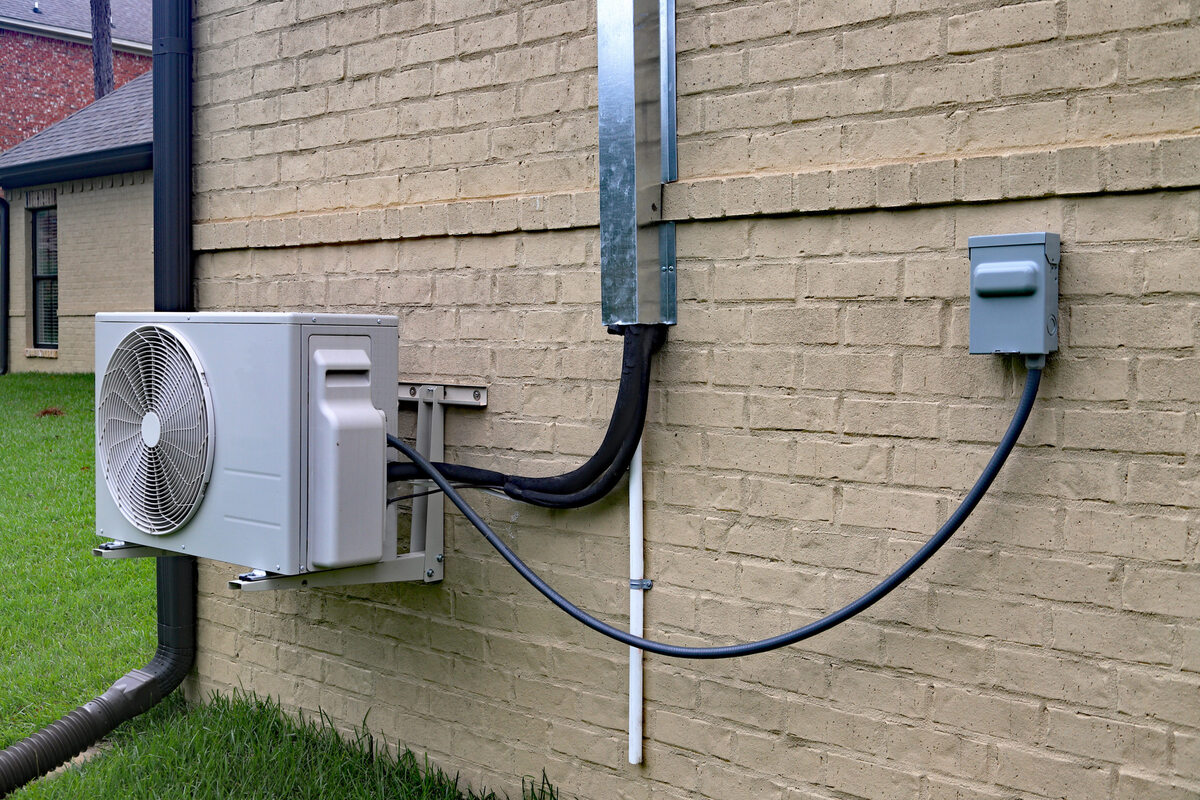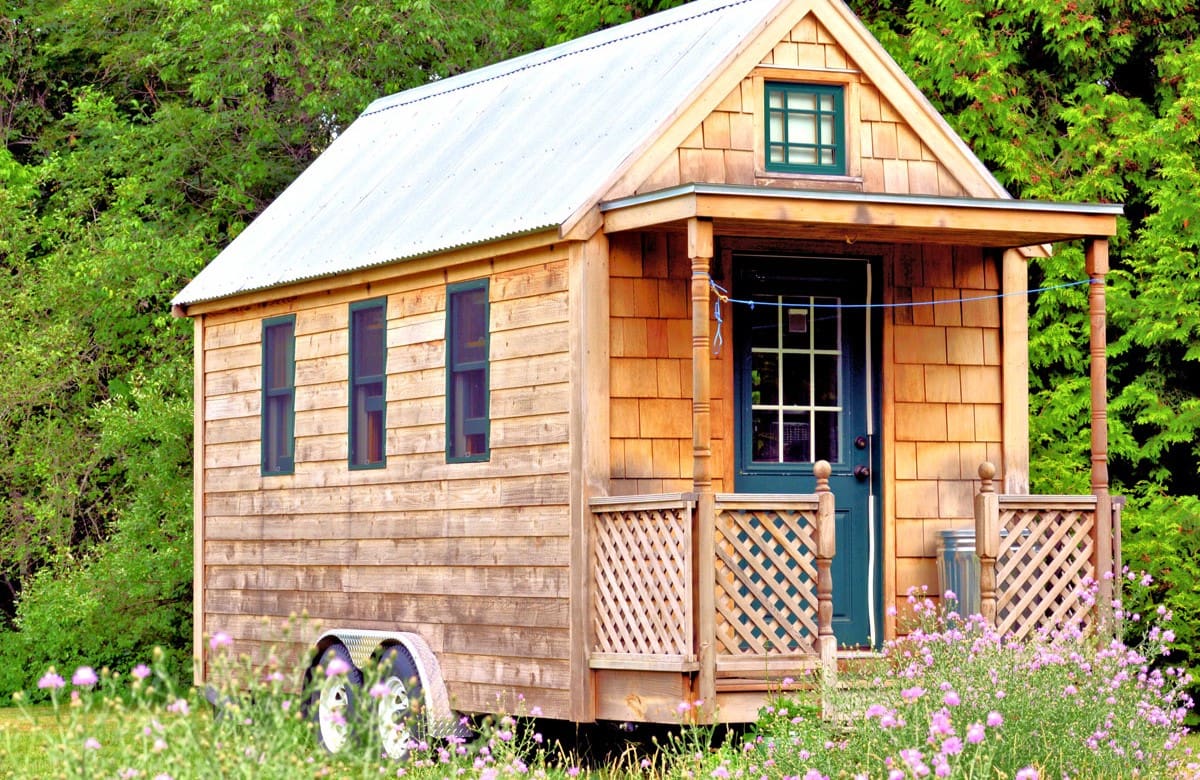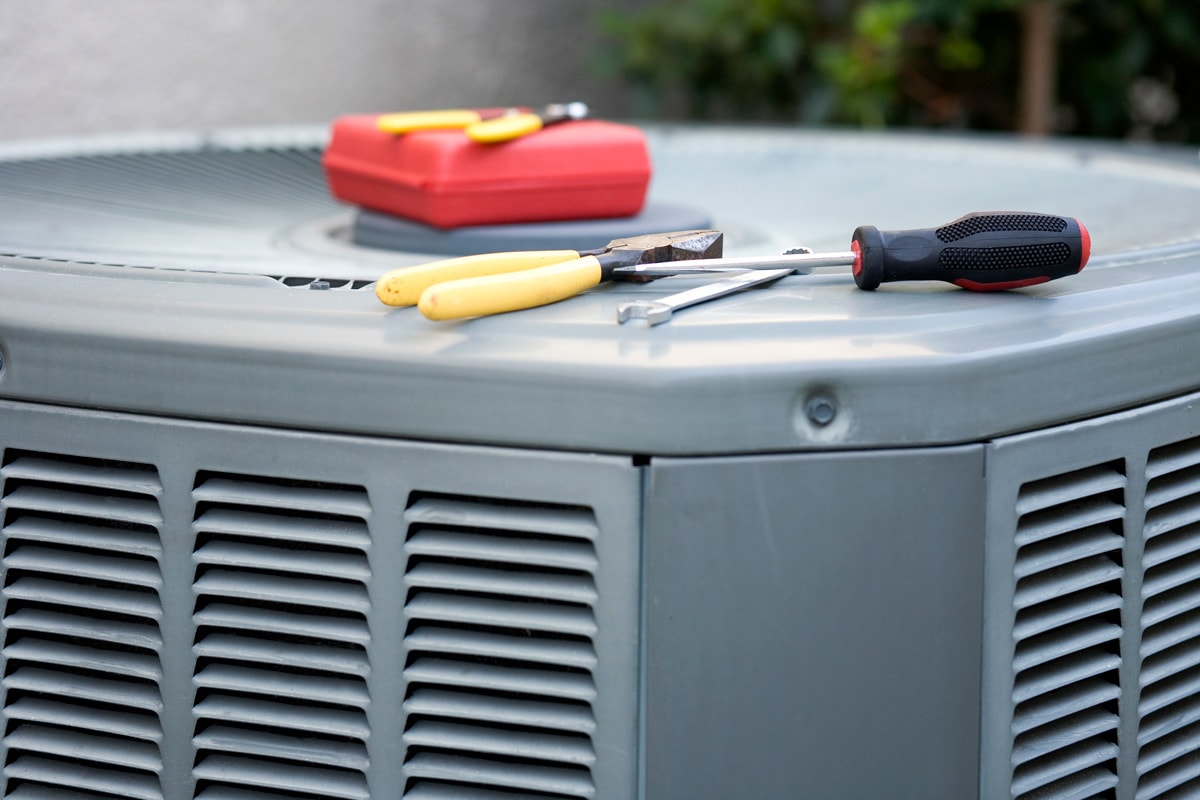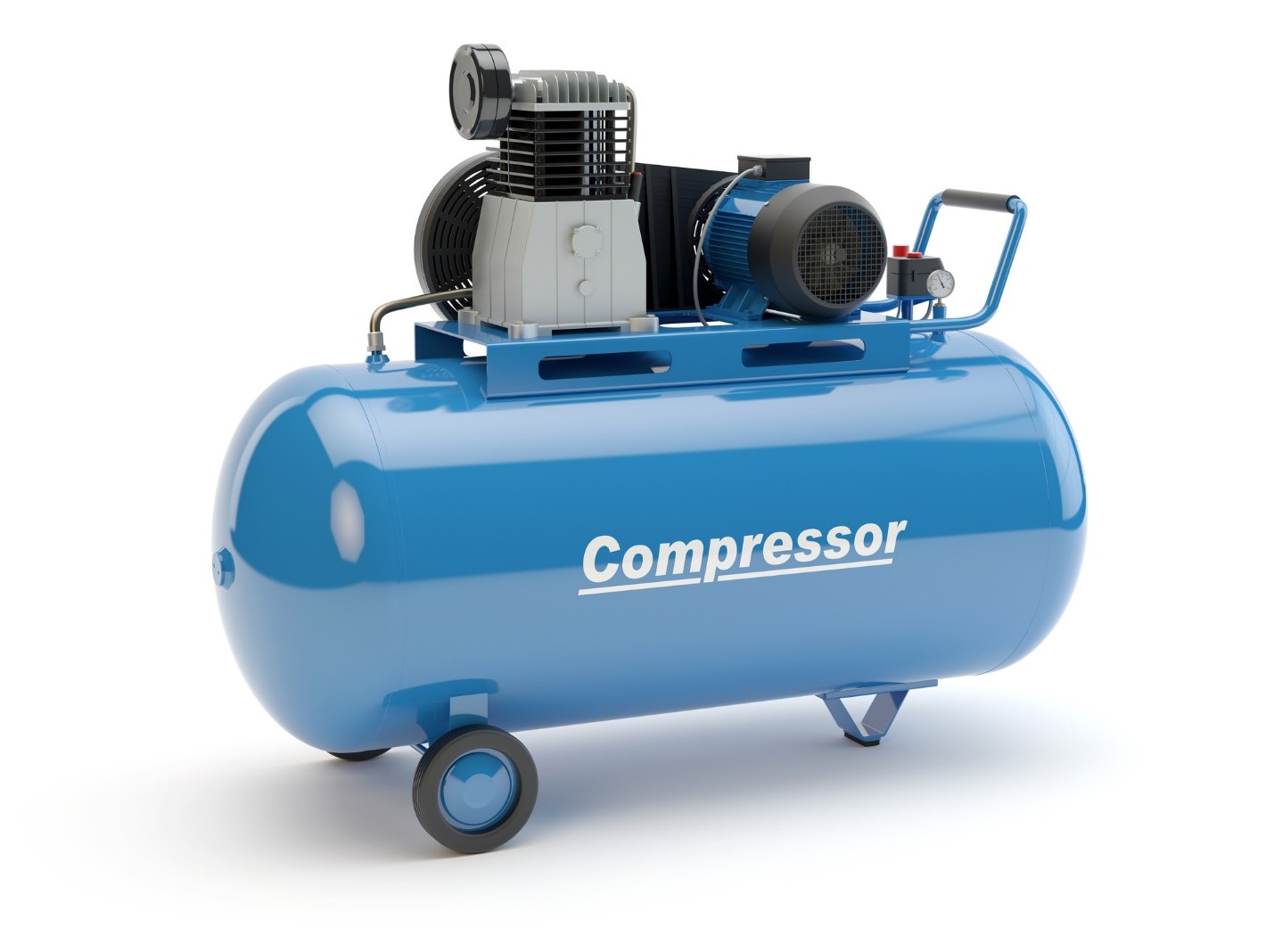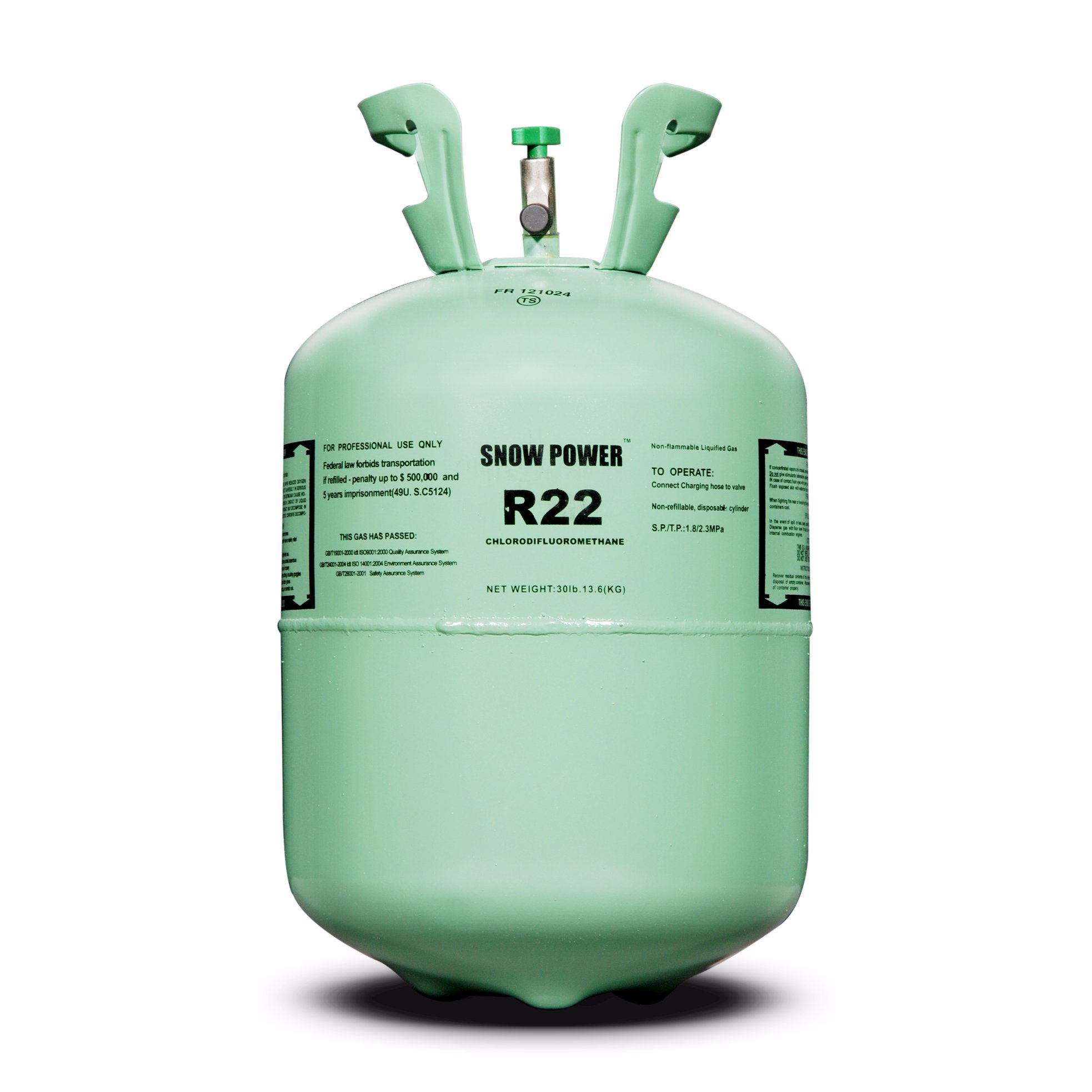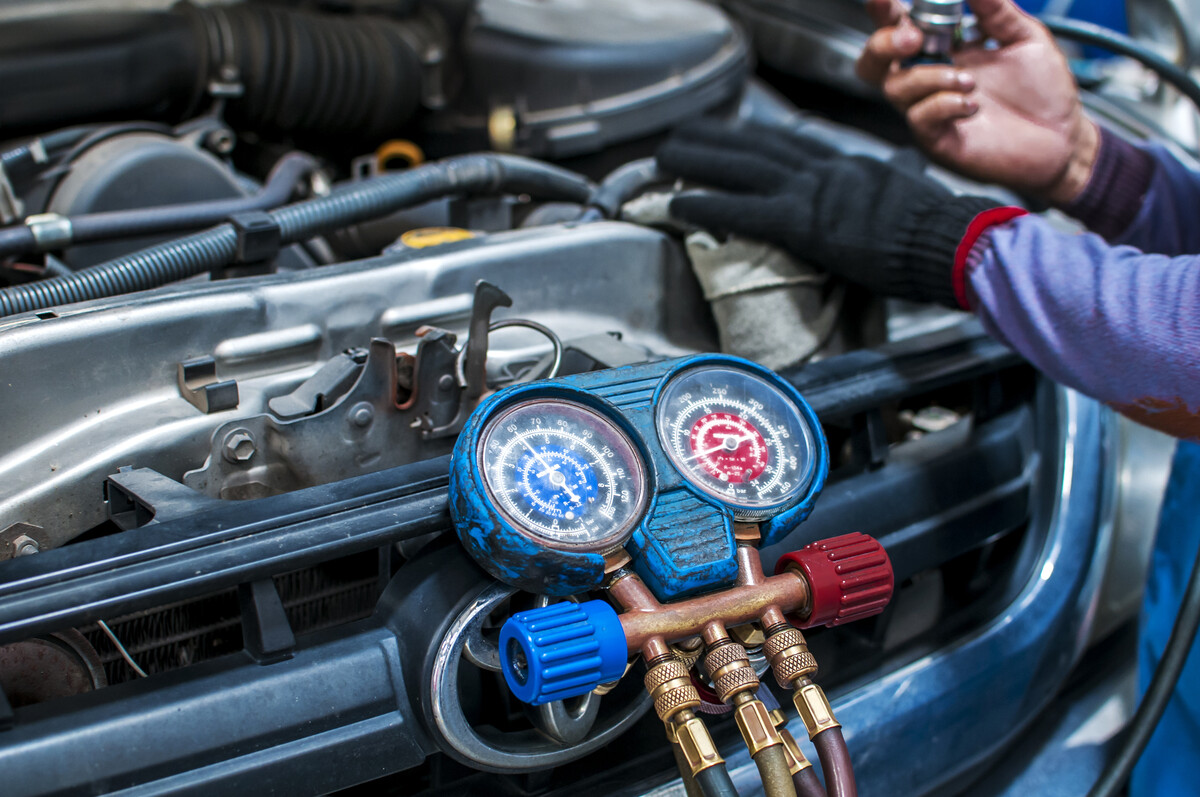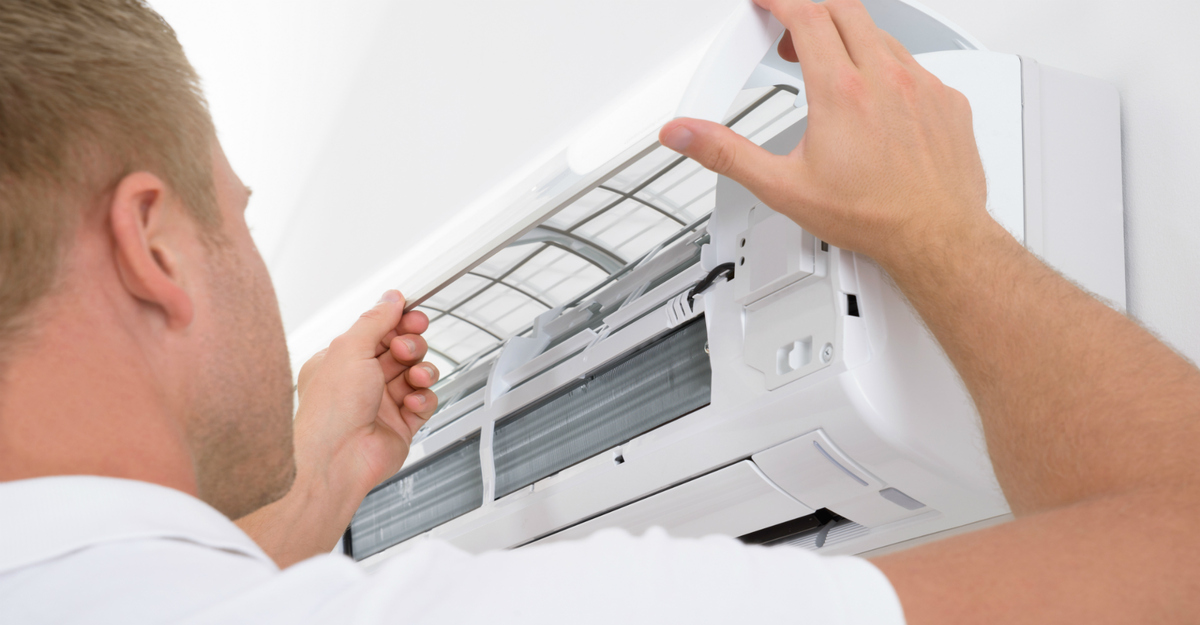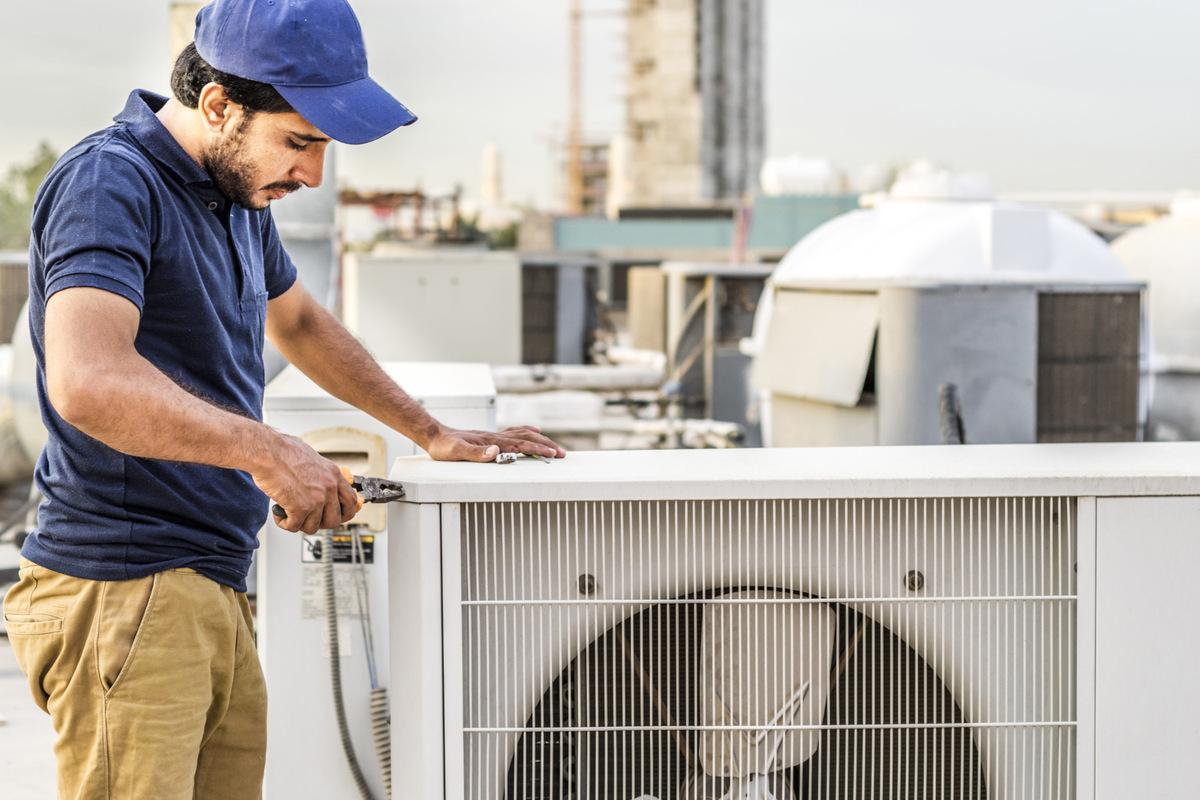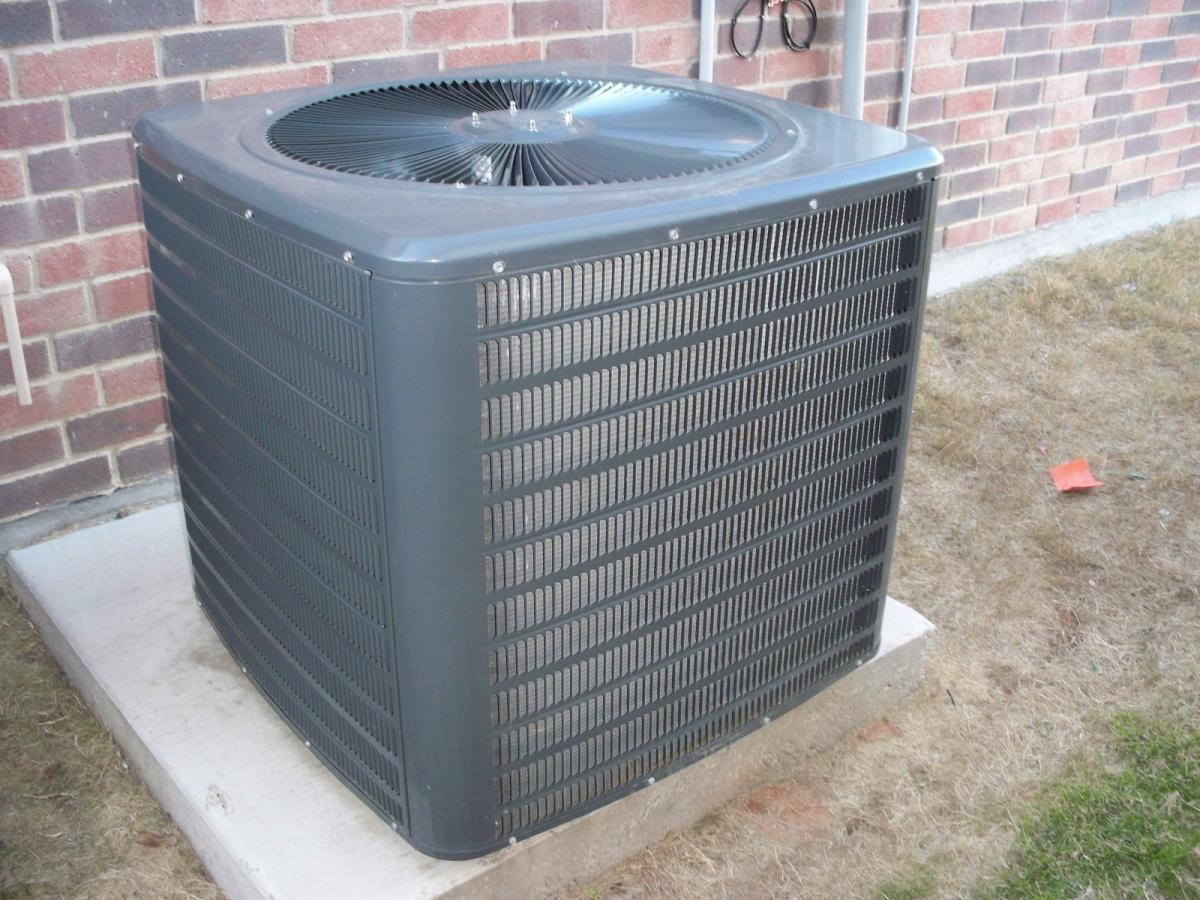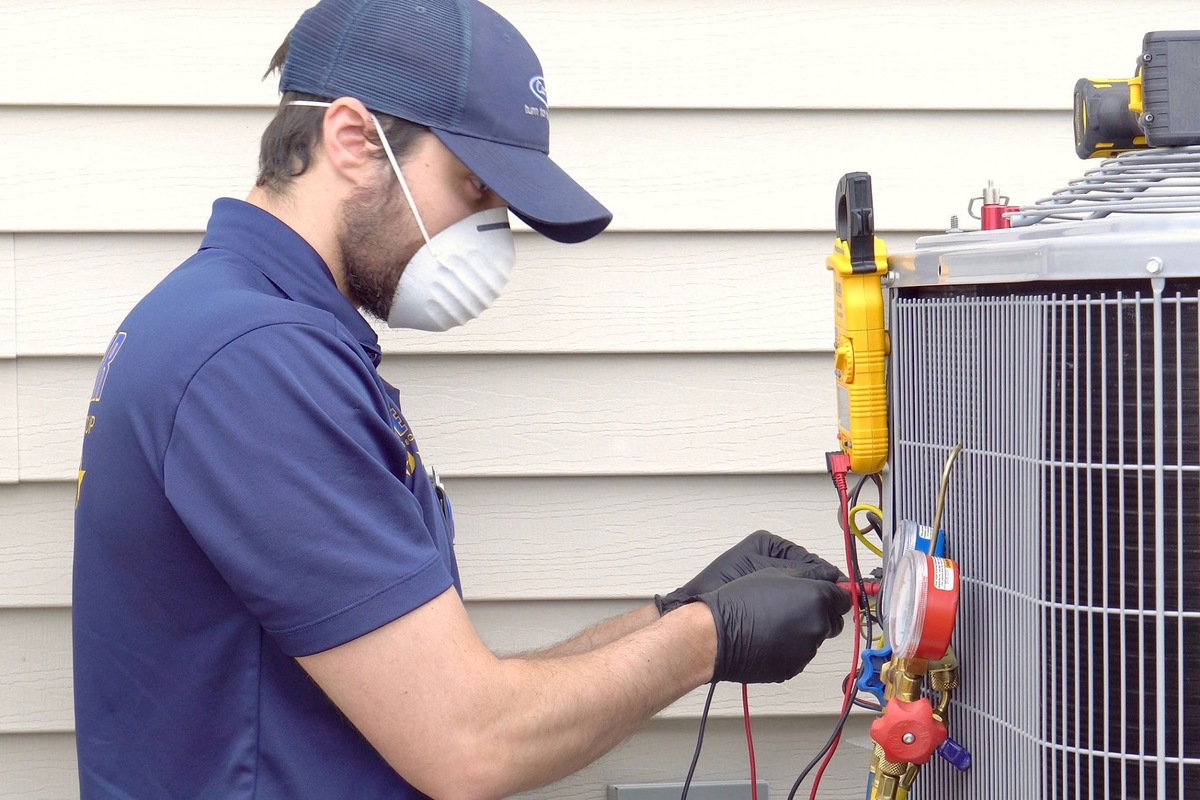Home>Home Maintenance>How Much Is It To Fix Air Conditioning
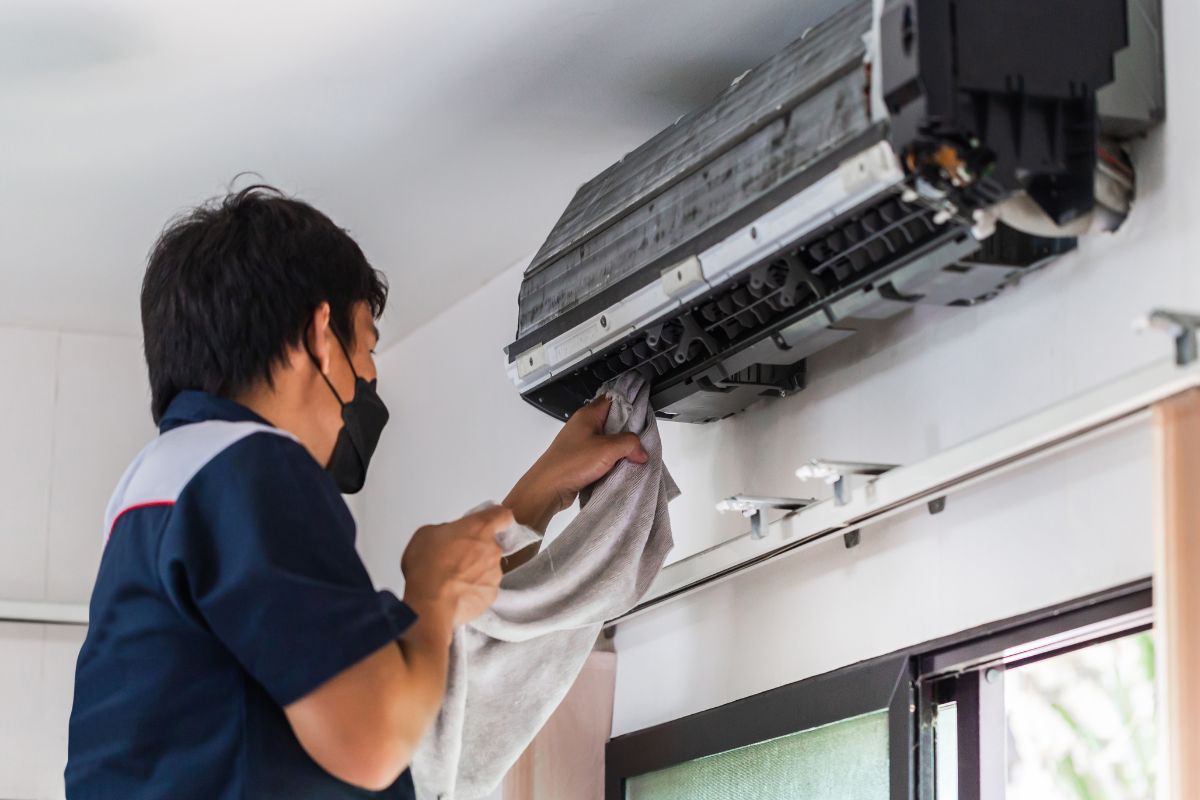

Home Maintenance
How Much Is It To Fix Air Conditioning
Modified: March 6, 2024
Need to fix your air conditioning? Find out how much it costs for home maintenance and get your AC back up and running.
(Many of the links in this article redirect to a specific reviewed product. Your purchase of these products through affiliate links helps to generate commission for Storables.com, at no extra cost. Learn more)
Introduction
Welcome to the world of home maintenance, where keeping your air conditioning system in good working order is essential for your comfort and well-being. Whether you live in a sweltering climate or just want to beat the summer heat, a reliable and efficient air conditioning system is a must-have in any home.
But what happens when your air conditioner starts acting up or stops working altogether? Suddenly, you find yourself faced with the need for air conditioning repair. The big question on your mind now is, how much is it going to cost?
In this article, we will explore the various factors that can affect the cost of air conditioning repair. From identifying common air conditioning issues and their associated repair costs to understanding whether it’s worth attempting a DIY repair or opting for professional help, we’ve got you covered.
So, whether you’re dealing with a malfunctioning unit or just curious about the potential costs involved, read on to gain insights and knowledge that will help you make informed decisions about your air conditioning repair needs.
Key Takeaways:
- Keep your air conditioning system in top shape by addressing issues promptly and maintaining regular maintenance to avoid costly repairs in the long run.
- When it comes to air conditioning repair, consider seeking professional help for complex issues and investing in energy-efficient upgrades to save money and ensure reliable repairs.
Factors Affecting the Cost of Air Conditioning Repair
When it comes to air conditioning repair, the cost can vary depending on several factors. Understanding these factors can help you anticipate the expenses involved and make smart decisions about your repair options. Let’s dive into some of the key factors that can affect the cost of air conditioning repair:
- Type and Extent of the Problem: The specific issue with your air conditioning system will play a significant role in determining the cost of repair. Common problems such as a faulty compressor, refrigerant leaks, or a broken fan motor can vary in complexity and repair cost.
- Age of the Unit: Older air conditioning units may require more extensive repairs or even replacement parts, which can increase the overall repair cost. Additionally, finding replacement parts for older models might be more challenging, potentially driving up the expense.
- System Size and Complexity: The size and complexity of your air conditioning system can also impact the cost. Larger or multi-zone systems may require more time and effort to diagnose and repair, resulting in higher expenses.
- Contractor’s Experience and Expertise: The expertise and reputation of the HVAC contractor you hire can influence the cost of repair. Established contractors with a strong track record may charge higher rates, but their experience and quality of work are often worth the investment for a reliable and long-lasting repair.
- Geographical Location: The cost of living in your area can also affect the price of air conditioning repair. Urban areas or regions with high demand for HVAC services may have higher labor and materials costs, which can translate into higher repair bills.
- Emergency Repairs: If you require emergency repairs, such as fixing your air conditioner during weekends, holidays, or after-hours, expect to pay a higher rate for the service. Emergency repairs often come with a premium price due to the immediate response and inconvenience involved.
Keep in mind that these factors are not exhaustive, and there may be other variables that can influence the cost of air conditioning repair in your specific situation. It’s always a good idea to consult with a professional HVAC technician to get an accurate estimate based on your unique circumstances.
Common Air Conditioning Issues and Repair Costs
Now that we have a better understanding of the factors that can affect the cost of air conditioning repair, let’s explore some of the most common air conditioning issues and their associated repair costs:
- Refrigerant Leaks: Refrigerant leaks can cause your air conditioner to lose its cooling capacity. Repairing a refrigerant leak involves locating the source of the leak, fixing it, and then recharging the system with the appropriate amount of refrigerant. The cost of repairing a refrigerant leak can range from $200 to $1,500, depending on the severity and accessibility of the leak.
- Faulty Compressor: The compressor is the heart of your air conditioning system, and if it fails, the entire system may not work. Replacing a faulty compressor is a significant repair that can cost between $1,000 and $2,500, including labor and parts.
- Broken Fan Motor: The fan motor is responsible for circulating air throughout your home. If it becomes faulty or fails, it can lead to reduced airflow or no airflow at all. Repairing or replacing a faulty fan motor can cost anywhere from $200 to $700, depending on the motor’s make and model.
- Thermostat Issues: A malfunctioning thermostat can cause temperature inconsistencies or improper operation of your air conditioning system. Repairing or replacing a faulty thermostat can range from $100 to $300, depending on the type of thermostat and additional wiring or programming requirements.
- Clogged Air Ducts: Over time, dust, debris, and other particles can accumulate in your air ducts, hindering airflow and reducing the efficiency of your system. Cleaning and realigning the ductwork can cost between $300 and $500, depending on the size and complexity of your duct system.
- Electrical Component Failures: Electrical issues, such as faulty wiring, blown fuses, or tripped breakers, can disrupt the functioning of your air conditioning system. Repair costs for electrical component failures can range from $100 to $500, depending on the complexity of the issue and the extent of the repair.
Remember that these are just general estimates, and the actual repair costs may vary depending on your location, the HVAC contractor you hire, and the specific circumstances surrounding your air conditioning system. It’s crucial to consult with a professional technician who can assess your system’s needs and provide an accurate repair cost estimate.
It can cost anywhere from $150 to $450 to fix air conditioning, depending on the issue. Regular maintenance can help prevent costly repairs.
DIY vs Professional Air Conditioning Repair
When faced with air conditioning issues, one question that often arises is whether to attempt a DIY repair or seek professional help. While minor maintenance tasks are suitable for a DIY approach, more complex repairs are best left to the experts. Let’s explore the pros and cons of each option:
DIY Air Conditioning Repair:
- Cost Savings: One of the primary advantages of a DIY repair is the potential cost savings. By taking matters into your own hands, you can avoid paying for professional labor and potentially save money on parts.
- Learning Experience: DIY repairs can provide valuable learning experiences. You can gain a better understanding of how your air conditioning system works and develop useful maintenance skills for the future.
- Simple Maintenance Tasks: DIY repairs are suitable for simple maintenance tasks such as cleaning or replacing air filters, clearing debris around the outdoor unit, or adjusting thermostat settings.
However, it’s important to consider the limitations of DIY repairs:
- Lack of Expertise: Complex air conditioning repairs require specialized knowledge and technical expertise. Without the necessary training and experience, attempting these repairs yourself can lead to costly mistakes or safety hazards.
- Potential for Further Damage: Mishandling certain components or making incorrect repairs can cause further damage to your air conditioning system. This can result in more extensive repairs and ultimately higher costs.
- No Warranty Coverage: DIY repairs typically do not come with any warranty coverage. If something goes wrong after attempting a repair, you will be solely responsible for any additional expenses.
Professional Air Conditioning Repair:
- Expertise and Experience: HVAC professionals have the necessary expertise and experience to diagnose and repair air conditioning issues accurately. They can ensure that repairs are done correctly the first time, saving you time and potential headaches.
- Proper Tools and Equipment: HVAC technicians have access to specialized tools and equipment required for efficient and effective repairs. This allows them to work more quickly and accurately than a DIY approach.
- Warranty Protection: Professional repairs often come with warranty coverage, providing you with peace of mind in case any issues arise after the repair is complete. This can save you from potential expenses in the future.
While professional air conditioning repair may involve higher upfront costs, it is generally the recommended option for complex repairs or issues that require specialized expertise. By hiring a professional, you can ensure the proper functioning and longevity of your air conditioning system while avoiding the risks associated with DIY repairs.
Tips to Save Money on Air Conditioning Repair
Air conditioning repair costs can add up quickly, especially for major repairs. However, there are several tips and strategies you can implement to save money on your air conditioning repair expenses. Here are some helpful tips to consider:
- Maintain Regular Maintenance: Regular maintenance, such as cleaning or replacing air filters, clearing debris around the outdoor unit, and inspecting the system for any signs of wear and tear, can help prevent major issues and extend the lifespan of your air conditioning system. By keeping up with maintenance, you may be able to avoid costly repairs altogether.
- Address Issues Promptly: When you notice any signs of trouble with your air conditioning system, such as reduced cooling capacity or unusual noises, address them promptly. Ignoring these issues can lead to further damage and more expensive repairs down the line.
- Seek Multiple Quotes: If you do require professional air conditioning repair, don’t hesitate to seek multiple quotes from different HVAC contractors. Comparing prices and services can help you find the best value for your money.
- Consider Preventive Maintenance Contracts: Some HVAC companies offer preventive maintenance contracts that cover routine maintenance and inspections. These contracts can help you save money in the long run by ensuring that your system receives regular care and catching any minor issues before they escalate into major repairs.
- Invest in Energy-Efficient Upgrades: Upgrading to energy-efficient components, such as high SEER (Seasonal Energy Efficiency Ratio) air conditioners or programmable thermostats, can help lower your energy bills and minimize the strain on your system. While the upfront cost may be higher, the long-term energy savings and potential for fewer repairs can make it a worthwhile investment.
- Do Your Research: Before hiring an HVAC contractor, take the time to research their qualifications, reviews, and reputation. Look for contractors who are licensed, insured, and have a strong track record of providing quality service. This can help ensure that you are hiring a reputable professional who will deliver reliable repairs at a fair price.
- Consider Financing Options: If you are facing a major air conditioning repair that requires a significant financial investment, inquire about financing options. Some HVAC companies offer flexible payment plans or financing options that can help ease the upfront cost and allow you to spread out the expense over time.
By implementing these tips, you can take proactive steps to reduce the impact of air conditioning repair costs on your budget while ensuring your system operates efficiently and effectively.
Read more: How Much Does Ducted Air Conditioning Cost
Conclusion
Maintaining a properly functioning air conditioning system is essential for your comfort and well-being, especially during the sweltering summer months. However, when faced with air conditioning issues, it’s important to be aware of the potential costs associated with repair and make informed decisions.
In this article, we have explored the factors that can affect the cost of air conditioning repair, such as the type and extent of the problem, the age of the unit, system size and complexity, contractor expertise, geographical location, and the urgency of the repair. By understanding these factors, you can better anticipate the potential costs and plan accordingly.
We have also discussed common air conditioning issues and their associated repair costs. From refrigerant leaks and faulty compressors to broken fan motors and thermostat issues, each repair comes with its own price tag. Having an understanding of these costs can help you evaluate repair estimates and make informed decisions about your air conditioning system.
When it comes to the repair process itself, we have discussed the advantages and limitations of DIY repairs versus professional air conditioning repair. While simple maintenance tasks can be DIY-friendly, complex repairs and issues that require specialized expertise are best left to HVAC professionals. Investing in professional repair can save you from potential mistakes, ensure the correct diagnosis and repair, and provide warranty coverage for added peace of mind.
Lastly, we have provided tips to save money on air conditioning repair. From regular maintenance and prompt addressing of issues to seeking multiple quotes, considering preventive maintenance contracts, and investing in energy-efficient upgrades, these strategies can help you minimize repair costs in the long run.
Remember, when it comes to air conditioning repair, it’s crucial to strike a balance between cost-saving measures and ensuring the quality and reliability of the repair. By staying proactive with maintenance, seeking professional help when needed, and implementing cost-saving strategies, you can keep your air conditioning system in top shape without breaking the bank.
So, whether you’re facing an air conditioning issue or simply looking to stay informed, we hope that this article has provided you with valuable insights and guidance to navigate the world of air conditioning repair with confidence.
Frequently Asked Questions about How Much Is It To Fix Air Conditioning
Was this page helpful?
At Storables.com, we guarantee accurate and reliable information. Our content, validated by Expert Board Contributors, is crafted following stringent Editorial Policies. We're committed to providing you with well-researched, expert-backed insights for all your informational needs.
